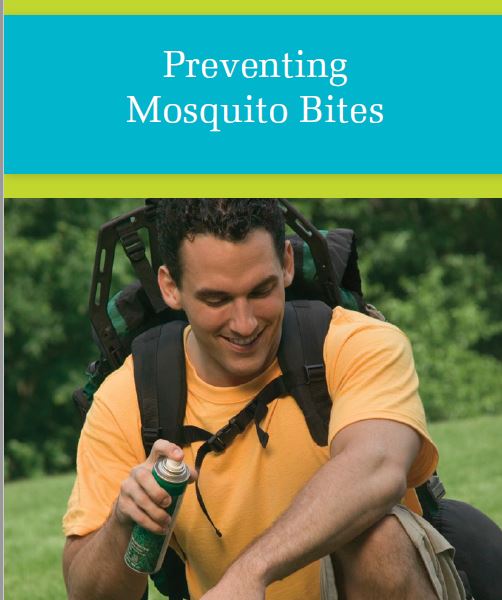EEE Public Safety Information
Downloadable public safety information

What is Eastern Equine Encephalitis?
Eastern equine encephalitis (EEE) is a rare but serious disease caused by a virus.
How is the EEE virus spread?
The virus that causes EEE is spread through the bite of an infected mosquito. In Massachusetts, the virus is most often identified in mosquitoes found in and around freshwater, hardwood swamps. More information about different types of mosquitoes that can spread the virus can be found on the MDPH website at www.mass.gov/dph/mosquito.
EEE virus particularly infects birds, often with no evidence of illness in the bird. Mosquitoes become infected when they bite infected birds. Although humans and several other types of mammals, particularly horses and llamas, can become infected, they do not spread disease.
How common is EEE in Massachusetts?
EEE is a very rare disease. Since the virus was first identified in Massachusetts in 1938, fewer than 100 cases have occurred. Over 60% of those cases have been from Plymouth and Norfolk counties.
Outbreaks of EEE usually occur in Massachusetts every 10-20 years. These outbreaks will typically last two to three years. The most recent outbreak of EEE in Massachusetts began in 2010 and included nine cases with four fatalities through 2012.
What are the symptoms of EEE?
The first symptoms of EEE are fever (often 103º to 106ºF), stiff neck, headache, and lack of energy. These symptoms show up three to ten days after a bite from an infected mosquito. Inflammation and swelling of the brain, called encephalitis, is the most dangerous and frequent serious complication. The disease gets worse quickly and some patients may go into a coma within a week.
More information is in the Downloadable fact sheet below.
Downloadable Information
EEE Factsheet
Preventing Mosquito Bites

Why is it important to prevent mosquito bites?
Mosquitoes can spread diseases that make you sick.
In Massachusetts, mosquitoes can give you eastern equine encephalitis (EEE) virus and West Nile virus (WNV).
Eastern equine encephalitis is a rare but serious disease. Symptoms include high fever, stiff neck, headache, and lack of energy.
Swelling of the brain, called encephalitis, is the most dangerous complication, and can cause coma and death. Most cases in
Massachusetts occur in the southeastern part of the state.
West Nile virus infections are more common than EEE, but most
do not cause any symptoms. Mild WNV infections can cause
fever, headache and body aches, often with a skin rash and swollen
lymph glands. A small number of people (less than 1 out of 100)
who get infected with West Nile virus develop more serious illness;
this is more common in people over the age of 50. Symptoms
of serious illness include headache, high fever, stiff neck, confusion,
muscle weakness, tremors (shaking), convulsions, coma, paralysis,
swelling of the brain, and sometimes death.
See your doctor if you develop these symptoms.
Only a small number of mosquitoes are infected at any given time, so being bitten by
a mosquito does not mean you will get sick. However, the best way to avoid both of these
illnesses is to prevent mosquito bites.
What is the best way to prevent mosquito bites?
- Use mosquito repellent any time you are outdoors. Even being out a short time can be long enough to get a mosquito bite. Make sure to follow directions on the label.
- Be aware of mosquitoes around you. If mosquitoes are biting you, reapply repellent, or think about going inside.
- Be aware of peak mosquito hours. The hours from dusk to dawn are peak biting times for many species of mosquitoes.
- Take extra care to use repellent and protective clothing during evening and early morning — or consider avoiding outdoor activities during these times.
- Use mosquito netting on baby carriages or playpens when your baby is outdoors.
When weather permits, wear long-sleeves, long pants and socks when outdoors. - Make sure screens are repaired and are tightly attached to doors and windows.
- Remove standing water from places like ditches, gutters, old tires, wheel barrows, and wading pools. Mosquitoes can begin to grow in any puddle or standing water that lasts for more than four days, so don’t let water collect around your home.
- Avoid camping overnight near freshwater swamps to reduce your risk of exposure to mosquitoes that carry the EEE virus. If you do go camping, use a tent with mosquito netting and use appropriate repellents.


This Post Has 3 Comments
I don’t understand why the town of Northbridge does not spray for mosquitoes. Really wish they would start doing it like they did years ago. I live on top of North Main and the mosquitos are horrible up here. We spray our grandkids and they still get bitten like crazy and yes it has DEET.
You can also go to Central Mass Mosiquito Control Project (https://www.cmmcp.org/) and click on the Service Request link on the right to have your home area spayed.
May take a few days. When I did mine they drove a small truck in my driveway and sprayed my backyard.
After I saw this I read that there will be aerial spraying done in Worcester and Middlesex counties which Northbridge is listed. Appreciate the info you gave me. Thanks and have a great day
Comments are closed.